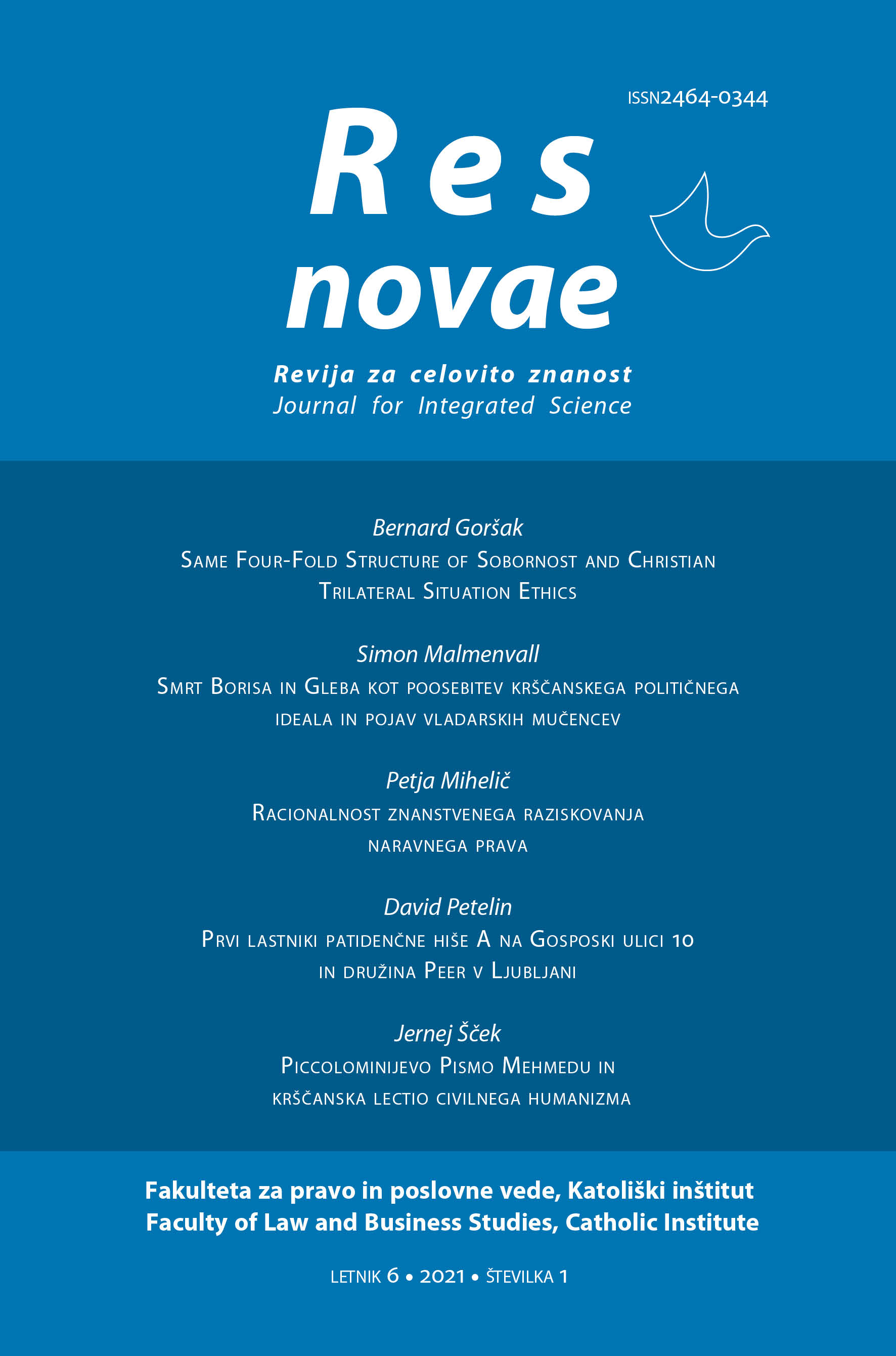Death of Boris and Gleb as a Personalization of the Christian Political Ideal and the Phenomenon of Ruler Martyrs
Simon Malmenvall
Death of Boris and Gleb as a Personalization of the Christian Political Ideal and the Phenomenon of Ruler Martyrs
DOI: https://doi.org/10.62983/rn2865.221.2
Key words: Boris and Gleb, Kievan Rus’, ruler martyrs, medieval literature, salvation history, Christian political thought
Abstract:
The princely brothers Boris and Gleb were the first canonized saints of Kievan Rus’. They respected the will of their elder brother, Sviatopolk, and voluntarily accepted their deaths in order to prevent further bloodshed and draw attention to the transience of earthly goods—in this case, political power. The martyrs of Rus’ were similar to the cases of princes Ludmila and Wenceslas of Bohemia, prince Jovan Vladimir of Dioclea, and Magnus Erlendsson, jarl (earl) of the Orkney Isles. All of the saints mentioned did not resort to revenge or fratricide as a means of struggle for power, but rather voluntarily accepted their deaths for the benefit of peace in their homelands. Ruler martyrs were regarded by their contemporaries as promoters of the new ideal of the Christian monarchs and as symbols of the rejection of the recent pagan past. This phenomenon, characteristic for the newly-Christianized lands on the eastern and northern periphery of Europe between the tenth and twelfth centuries, is also connected with the self-esteem of the ecclesiastical and secular elites—they saw their homelands, despite their relatively late adoption of Christianity, as culturally on equal footing with the other polities, which was to a large extent possible due to the emergence of the first local saints.
PDF



